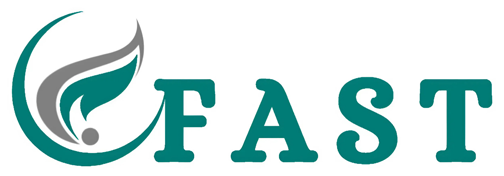
Understanding FSSC 22000 in the Food Trading Industry
Food safety is a fundamental concern in the global food supply chain, and organizations involved in food trading play a critical role in ensuring the safe delivery of products to consumers. One of the most widely recognized food safety certifications in this context is the FSSC 22000 (Food Safety System Certification 22000). This standard integrates ISO-based food safety principles with additional sector-specific requirements to establish a comprehensive framework for managing food safety risks. In the food trading industry, FSSC 22000 provides a structured and reliable approach to safeguarding food quality and safety, ensuring compliance with international standards and regulatory requirements.
Overview of FSSC 22000
FSSC 22000 is an internationally accepted certification scheme for food safety management systems (FSMS), developed to meet the needs of organizations across the food supply chain. It combines the ISO 22000 standard for FSMS with technical specifications for prerequisite programs (PRPs) and additional FSSC-specific requirements. The certification is approved by the Global Food Safety Initiative (GFSI), which means it is recognized worldwide as a benchmark for food safety compliance.
Initially launched in 2009 by the Foundation FSSC, the scheme has evolved over time to align with global food safety trends and requirements. It is applicable to a wide range of sectors, including food production, packaging, and trading. For the food trading industry, FSSC 22000 offers a robust framework to manage food safety hazards across sourcing, storage, transportation, and distribution activities.
Key Elements of FSSC 22000
- ISO 22000: The core of FSSC 22000 is ISO 22000, which provides the foundational requirements for an effective food safety management system. This includes hazard analysis, critical control points (HACCP), and risk-based decision-making.
- Prerequisite Programs (PRPs): For food trading, PRPs are essential in managing environmental conditions such as hygiene, pest control, and storage practices. The specific PRPs vary depending on the sector.
- FSSC Additional Requirements: These include management of services, product labeling, food defense, and food fraud prevention.
- Continuous Improvement: The certification process requires organizations to establish mechanisms for monitoring, measuring, and improving their food safety management systems over time.
Benefits of FSSC 22000 for Food Trading
Adopting FSSC 22000 certification offers several advantages for food trading companies:
1. Enhanced Food Safety
FSSC 22000 ensures systematic identification and mitigation of food safety risks throughout the supply chain. For food traders, this means improved control over sourcing, storage, and distribution processes, reducing the likelihood of contamination or product recalls.
2. Global Recognition
Since FSSC 22000 is GFSI-approved, it is recognized by major food manufacturers, retailers, and regulators worldwide. Food traders certified under this scheme gain access to a broader market and demonstrate their commitment to food safety and quality.
3. Compliance with Regulations
The certification helps organizations align with international and local food safety laws and standards, reducing the risk of non-compliance and associated penalties. For example, it supports compliance with the EU Food Safety Directive, the U.S. Food Safety Modernization Act (FSMA), and other regulatory frameworks.
4. Improved Supply Chain Trust
Food trading often involves dealing with multiple suppliers and distributors. FSSC 22000 enhances transparency and accountability in the supply chain, fostering trust among stakeholders and ensuring seamless collaboration.
5. Operational Efficiency
The systematic approach of FSSC 22000 encourages better resource management, waste reduction, and process optimization. For food traders, this translates to cost savings and improved operational performance.
6. Risk Mitigation
Food fraud and food defense are critical challenges in the food trading industry. FSSC 22000 includes specific measures to address these issues, helping organizations protect their brands and maintain consumer confidence.
Implementation of FSSC 22000 in Food Trading
To achieve FSSC 22000 certification, food trading companies must develop and implement an effective food safety management system that meets the scheme’s requirements. The process typically involves the following steps:
- Gap Analysis: Assess the existing food safety practices against FSSC 22000 standards to identify areas of improvement.
- System Design: Develop policies, procedures, and documentation to address the identified gaps, ensuring alignment with ISO 22000, PRPs, and additional requirements.
- Training and Awareness: Educate employees and stakeholders about the importance of food safety and their roles in maintaining compliance.
- Implementation: Put the designed system into practice, incorporating regular monitoring and record-keeping.
- Internal Audit: Conduct internal audits to evaluate the system’s effectiveness and identify potential improvements.
- Certification Audit: Engage an accredited certification body to perform an external audit and verify compliance.
- Continuous Improvement: Maintain certification through regular surveillance audits and ongoing improvements.
Challenges and Solutions
Implementing FSSC 22000 in the food trading industry can be challenging due to the complex and dynamic nature of global supply chains. Common challenges include:
- Supplier Variability: Inconsistent food safety practices among suppliers can affect overall compliance. Solution: Implement supplier audits and establish clear food safety requirements in contracts.
- Logistical Issues: Maintaining food safety during storage and transportation can be difficult. Solution: Use PRPs to define and monitor environmental controls, such as temperature and hygiene.
- Cost of Certification: Small and medium-sized enterprises (SMEs) may find the certification process costly. Solution: Seek financial assistance from industry grants or partner with stakeholders to share costs.
Conclusion
FSSC 22000 is a powerful tool for ensuring food safety and enhancing operational performance in the food trading industry. By adopting this certification, organizations can demonstrate their commitment to global food safety standards, gain a competitive advantage, and build trust with customers and partners. Despite the challenges, the benefits of certification far outweigh the costs, making it a strategic investment for any food trading business aiming for long-term success in the global market.

